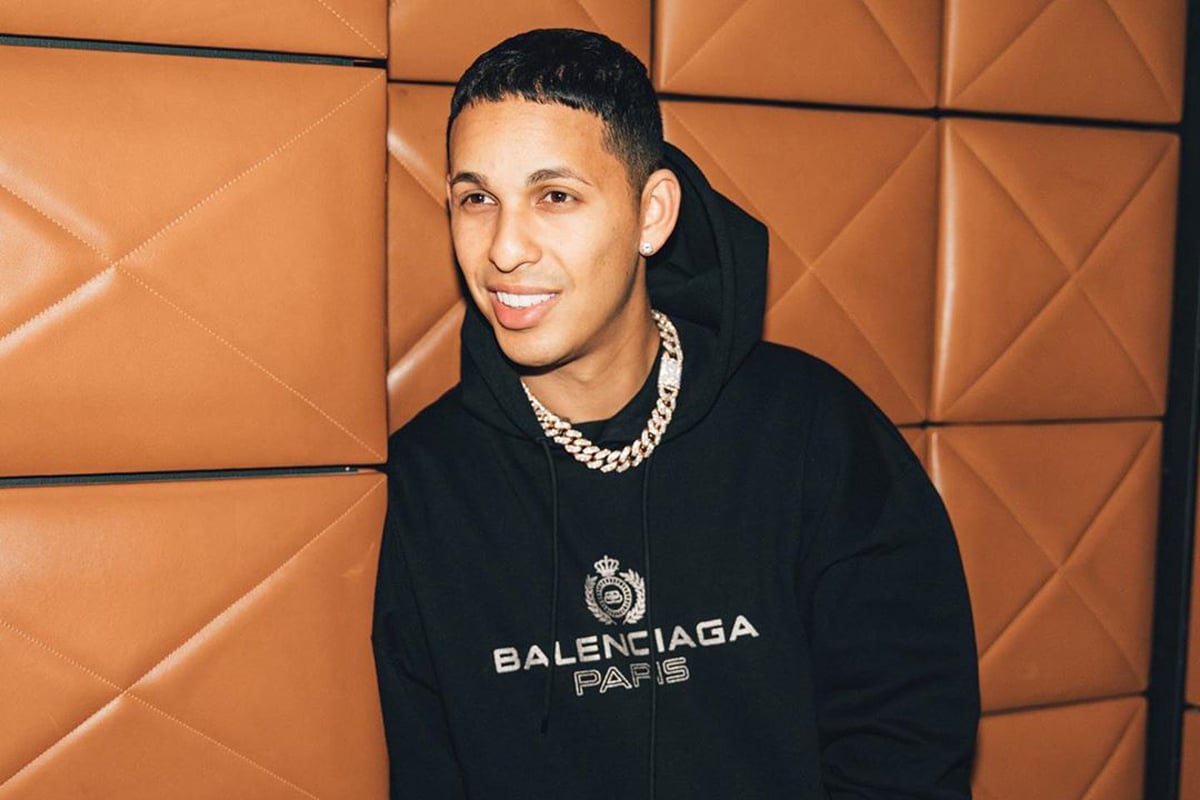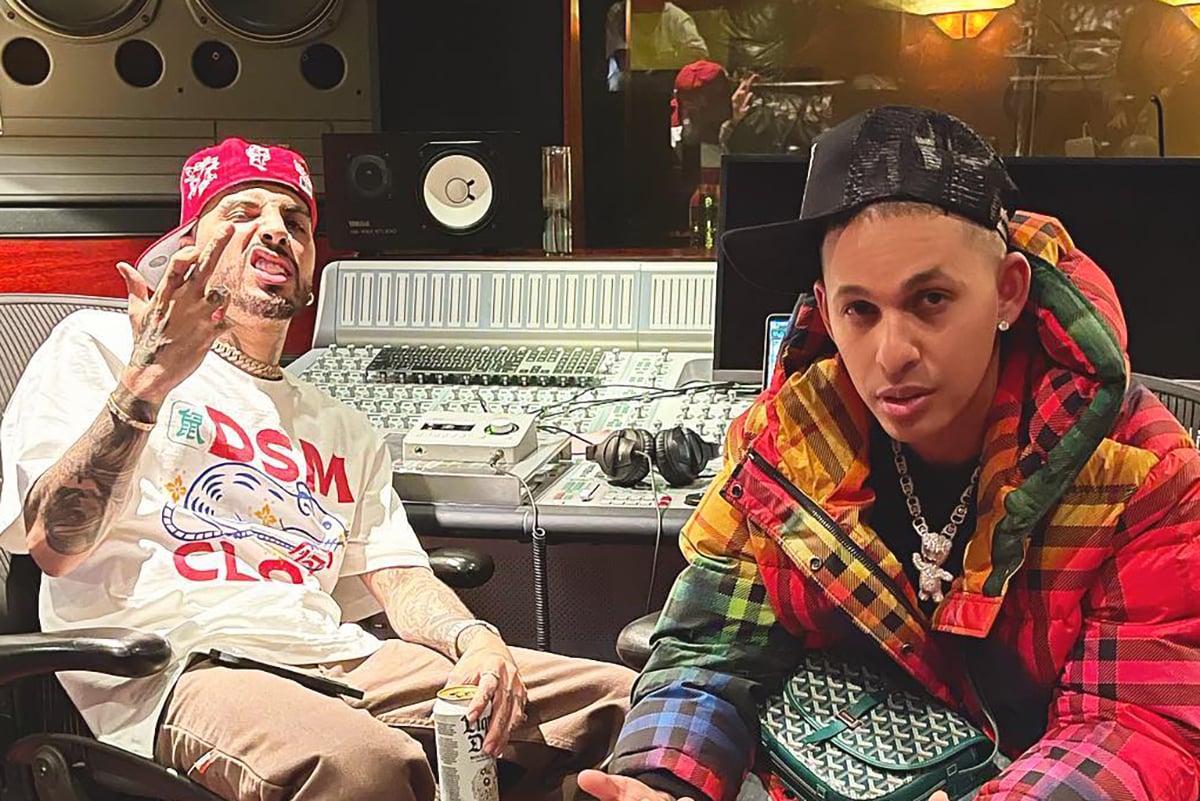Rvssian On Blending Latin Music And Dancehall: “It’s Almost The Same Music, Just In A Diffrent Language”

Jamaican producer Rvssian says that while Dancehall success fueled his rise, his expansion into Latin music was driven by a childhood exposure to the genre and an early belief in its potential before its explosion in the US.
“I felt like there was more for me. Like, I felt like me as Rvssian, was supposed to do more, not just only Dancehall, not taking away from Dancehall,” he recently told host Jaii Frais on the Let’s Be Honest podcast. “I just had a calling and feel like seh I could do more things.”
This yearning led him to Miami, a mecca for the Latin music that had resonated with him since childhood. “And that’s why I move there to touch other markets. I always used to listen to Hispanic music because as a young youth, a relative used to bring a lot of Hispanic girls around and they used to play that, and that’s how I got familiar with the artists and the sound.”
One significant moment in his career was the 2013 remix of Gyptian‘s UK Silver-certified Wine Slow with Farruko. According to Rvssian, despite initial skepticism from Gyptian’s label VP Records, the song’s success affirmed his belief in the genre’s potential. “I reached out to [Farruko’s] team, told them the idea, they loved it. They already knew of dancehall songs I produced before, so that shows you Dancehall still respected by the man dem and dem believe in it. We did the remix,” he explained.
“Funny enough VP have Gyptian signed, and when I told them what I was doing, dem tell me, ‘Rvssian, what are you doing? You’re wasting your time, and this will never work.’ I did it, then Latin music blew up, and then a year later dem link me back ‘hey, let’s try revisit the topic’ cause dem never see the vision.”
Echoing Sean Paul’s recent sentiments about fusing the Latin genre with Reggae and Dancehall, Rvssian added: “So, that is the first song that kinda opened my eyes to the genre working and saying me should blend two of them and even seeing it’s almost the same music, it’s just one is in a different language. It’s the same kinda riddim pattern, same melody, same everything.”
When asked whether he could speak Spanish, Rvssian responded: “Yes, now. Not like amazing, but you know I understand everything. I have convos, speak to the artists, speak to girls, whatever it is.”
When discussing his most impactful Latin record, he mentioned Krippy Kush, a collaboration with Bad Bunny, Farruko, Nicki Minaj, Travis Scott, and 21 Savage. This track, he noted, was not just a commercial success but also a cultural phenomenon, introducing Latin Trap to a broader American audience. “Bad Bunny, that was his song to Americans, where he had white Americans, Black Americans saying, ‘Who is this?’ It crossed over. What is this Latin Trap to that mainstream market? So culturally, that was a big record.”
He contrasted this with other hits like Passion Whine, which, while commercially successful, didn’t have the same cultural impact. “You see how [Vybz Kartel’s] Straight Jeans and Fitted was a statement, and where you go everywhere in Jamaica and everybody was dressed like this. That’s a cultural song, that move the culture. So the other songs are just good songs that don’t have a cultural statement behind it.”
The producer’s Latin RIAA-certified productions include Farruko’s Passion Whine (3x Platinum Latin), Nicky Jam, Farruko, Arcangel and Konshens’s Si Tu Lo Dejas (6X Platinum Latin), and Rauw Alejandro and Chris Brown’s Nostalgico (5X Platinum).
Rvssian also produced rapper French Montana’s Writing On The Wall with Post Malone and Cardi B, which is currently certified Gold in the United States for selling over 500,000 units. He touched upon his experiences working with Hip-Hop artists, noting one stark contrast between Latin artists and those in American Hip-Hop.
“Latin artists are more humble and easygoing, and then Hip Hop is very ego-driven,” he said. “Sometimes the man dem feel like they are bigger than who they are. But yeah, me and almost all the hip-hop man dem good and we work. Kevin Gates was one of the first hip-hop man, we linked and I produced a few songs on his album. [I did] stuff with the Migos, so [much] I can’t remember.”
He told Frais that he believed his reputation and presentation had earned him respect and trust in the studio with American artists.
“They trust me because when I’m in the studio with them, and they hear the music; it speaks for itself, one. Two, they would know who I am or if they don’t know they research and say ‘oh dah youth have numbers’. Also how I carry myself. I walk into the studio, I’m wearing either the same watch them have, or something crazier. So they realise if him wearing a one million dollar watch, him have to be doing something right.”


